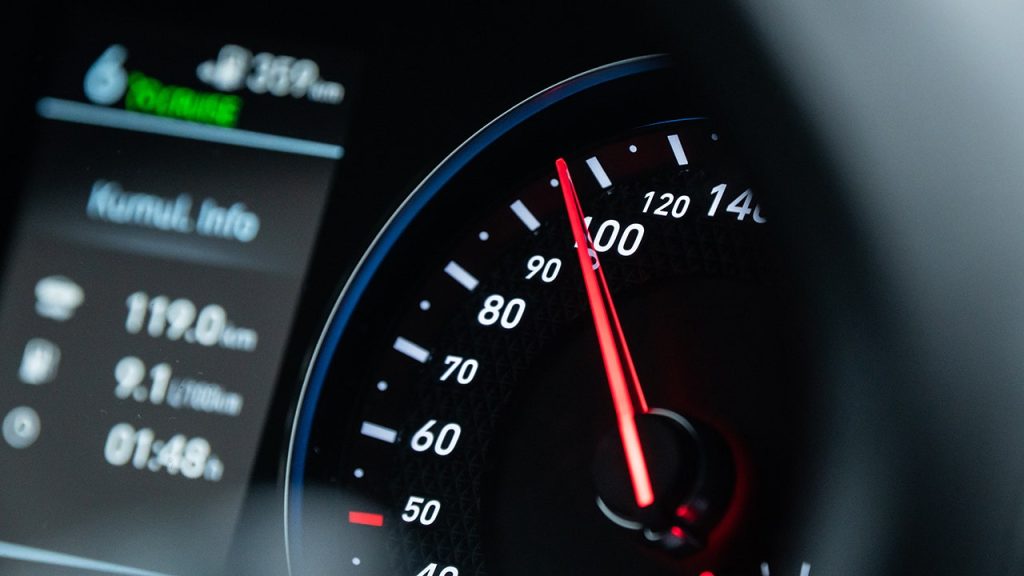Beginning July 6, 2024, all new cars and trucks sold within the European Union and Northern Ireland will be required to have intelligent speed assistance (ISA) technology activated. This safety feature will alert drivers if they are speeding by beeping, vibrating, or even slowing the vehicle down. While the United Kingdom has opted not to mandate the use of ISA on its roads, the technology will still be installed in vehicles, allowing drivers to choose whether to activate it each day. ISA technology uses a camera to read speed limit signs and GPS mapping data to determine the appropriate speed limit for the vehicle’s location. If the driver exceeds the speed limit, ISA will alert them and, if necessary, take control to reduce the vehicle’s speed.
Manufacturers like Ford have been offering ISA as an optional feature since 2015, with all new cars in Europe required to have ISA installed since 2022. The European Transport Safety Council estimates that ISA could reduce collisions by 30% and fatalities by 20%, ultimately helping drivers avoid speeding tickets as well. Additionally, a study conducted by Leeds University suggests that the implementation of ISA in the UK could lead to a 12% decrease in injuries resulting from vehicle crashes. The EU made the decision to require ISA technology in vehicles in 2018 after recognizing the high number of fatalities on the roads each year and the importance of taking action to reduce this number.
In response to the surge in migration, Finland has chosen to close its borders with Russia, prompting European Commission President Ursula von der Leyen to urge unity among EU member states. This move comes as tensions escalate between Russia and Western nations due to the conflict in Ukraine. As the EU grapples with pressing issues such as migration and security threats, the implementation of safety technology like ISA in vehicles highlights the importance of proactive measures to prevent accidents and protect individuals on the road. By mandating the use of advanced safety features, the EU aims to reduce the number of fatalities on the roads and enhance overall road safety for drivers and pedestrians alike.
The EU Commission has also launched an investigation to determine if China is restricting access to the medical device market. This inquiry comes at a time when global supply chain disruptions have raised concerns about access to essential medical supplies and equipment. By scrutinizing China’s actions in the medical device market, the EU seeks to ensure fair and transparent trade practices that benefit all parties involved. The EU’s commitment to investigating potential barriers to market access reflects its dedication to promoting a level playing field for businesses and enhancing competition in the global marketplace.
In conclusion, the implementation of ISA technology in vehicles represents an important step towards improving road safety and reducing accidents in the European Union and Northern Ireland. Through the use of advanced safety features like ISA, drivers can receive real-time feedback on their speed and be alerted when they are exceeding the speed limit. This proactive approach to road safety not only helps prevent accidents and fatalities but also contributes to a more efficient and secure transportation system. As the EU continues to address various challenges such as migration, security threats, and trade barriers, initiatives like mandating ISA technology demonstrate a commitment to enhancing the well-being and safety of individuals within the region. By leveraging technology and promoting collaboration among member states, the EU can work towards creating a safer and more resilient transportation network for all.













